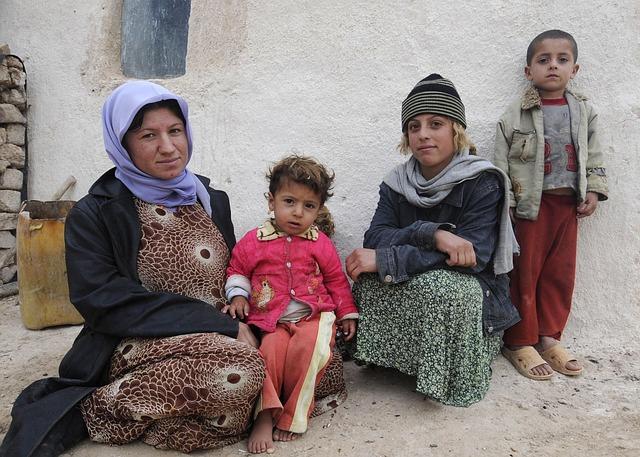In a tragic incident that has sent shockwaves through the community, an Iraqi Christian was murdered in Lyon, France, reigniting concerns over the rising tide of anti-Christian violence in the country. The brutal killing of the unnamed victim, who had sought refuge from religious persecution in Iraq, underscores a disturbing pattern of attacks against Christians in France. As communities grapple with the implications of this violence, lawmakers and religious leaders are calling for urgent measures to protect vulnerable populations and address the underlying issues fueling such hate crimes. This incident not only highlights the precarious situation of Christians in Europe but also raises important questions about societal tolerance and the collective responsibility to safeguard human rights.
Iraqi Christian Murder in Lyon Highlights Growing Threats to Religious Minorities in France
The tragic killing of an Iraqi Christian in Lyon has ignited a wave of concern regarding the increasing vulnerability of religious minorities in France. Reports indicate that this incident is part of a broader pattern of anti-Christian sentiment infiltrating various parts of the country. As members of various faiths coexist, Christian communities have voiced their fears about rising incidents of violence and discrimination, pointing to a chilling trend over recent years. Observers have noted that the situation has worsened, with many citing a lack of adequate protection and support from authorities.
This most recent act of violence has raised questions about the effectiveness of current measures in place to protect religious minorities. Communities have called for greater vigilance and stronger policies that address hate crimes targeted at Christians, and for a more robust response to these incidents. There is an urgent need for dialogue among different faith groups to promote understanding and respect, as well as collaborative efforts to combat the growing tide of intolerance. Initiatives to educate the public and enhance community support networks may prove essential in addressing these challenges.
Community Outcry and Government Response: The Need for Enhanced Protection Measures
The tragic killing of an Iraqi Christian in Lyon has ignited widespread condemnation and fear among Christian communities in France, reigniting discussions regarding the alarming rise in anti-Christian sentiments. Local leaders, activists, and faith community representatives are calling for immediate action and enhanced protection measures to safeguard vulnerable groups. The incident has highlighted not only the specific dangers faced by Christians but also broader concerns regarding the cultural and societal acceptance of religious intolerance across the country.
In response to the community’s outcry, government officials are under increasing pressure to implement effective strategies aimed at combatting religious-based violence. Proposed measures may include:
- Increased Security Presence: Enhanced police patrols around places of worship.
- Community Engagement Programs: Initiatives fostering dialogue between different faiths to promote understanding.
- Legislative Review: Examining current laws pertaining to hate crimes to identify necessary updates.
To assess the implications of these proposals, a recent survey indicated that a vast majority of respondents believe stronger protective measures are essential for community safety, as showcased in the following table:
| Measure Proposed | Community Support (%) |
|---|---|
| Increased Security Presence | 78% |
| Community Engagement Programs | 82% |
| Legislative Review | 76% |
Understanding the Root Causes of Anti-Christian Violence in Europe
Recent incidents of violence against Christians in Europe, exemplified by the tragic killing of an Iraqi Christian in Lyon, have reignited discussions about the underlying factors contributing to such hostility. Anti-Christian sentiments can often be traced back to a complex interplay of social, political, and religious dynamics. These include:
- Rising religious intolerance in multicultural societies
- Manipulation of religious identities by extremist groups
- A spike in anti-immigrant sentiments leading to scapegoating
- Historical grievances and tensions among different faith communities
Moreover, the political climate in various European nations can exacerbate these tensions, as legislation and public discourse shift away from protecting minority rights. Often, the portrayal of Christians in media and public forums can unjustly depict them as oppressors, fostering an environment where violence is rationalized. A closer examination reveals that acts of violence do not occur in isolation but are symptomatic of broader societal fractures, which demand a thoughtful and comprehensive response from both governments and community leaders.
Strengthening Interfaith Dialogue as a Solution to Religious Intolerance
The tragic killing of an Iraqi Christian in Lyon has reignited discussions about the growing trend of religious intolerance in Europe, especially towards minority faiths. As communities grapple with the implications of such violence, it becomes increasingly essential to address the underlying causes of religious animosity. Strengthening interfaith dialogue can provide a critical pathway toward mutual respect and understanding. By fostering open communication among diverse religious groups, societies can create environments where intolerance is challenged and countered through education and empathy. Key elements to consider in this approach include:
- Encouraging Shared Community Initiatives: Collaborative projects that bring together different faith leaders can create common goals and enhance community bonds.
- Promoting Educational Programs: Awareness campaigns focusing on shared values and histories can dispel myths and reduce prejudice.
- Creating Safe Spaces for Dialogue: Forums where individuals can discuss their beliefs and experiences openly can promote understanding and break down barriers.
Moreover, local governments and organizations play a pivotal role in facilitating these dialogues. Investing in interfaith initiatives not only addresses immediate concerns like rising anti-Christian violence but also lays a foundation for a more harmonious society. By ensuring that these conversations are inclusive and actionable, stakeholders can work towards a vision of coexistence. A collaborative framework may consist of:
| Initiative | Description |
|---|---|
| Interfaith Panels | Regular discussions featuring voices from multiple faiths to address local issues. |
| Cultural Festivals | Celebrations that showcase diverse religious traditions, fostering appreciation and respect. |
| Youth Programs | Engagement through workshops and events aimed at young people to promote interfaith friendship. |
The Way Forward
In summary, the tragic death of the Iraqi Christian in Lyon serves as a stark reminder of the growing concern surrounding anti-Christian violence in France. The incident has reignited discussions about religious tolerance and the need for greater protection of minority communities within the country. As authorities investigate this heinous act and gather more information, the question remains: how can France ensure the safety and dignity of its diverse religious groups? The response to this tragedy may well shape the future of interfaith relations and the societal commitment to uphold the values of peace and coexistence that are essential for a harmonious society. Continued vigilance and dialogue will be imperative in addressing the underlying issues that contribute to such violence and fostering a culture of respect for all beliefs.


![Discover the Top 20 Business Influencers Driving France’s Future in 2026! Top 20 Business Influencers in France in 2026 [🏆Rating] – Favikon](https://news-france.info/wp-content/uploads/2026/02/43985-top-20-business-influencers-in-france-in-2026-rating-favikon-450x450.jpg)

